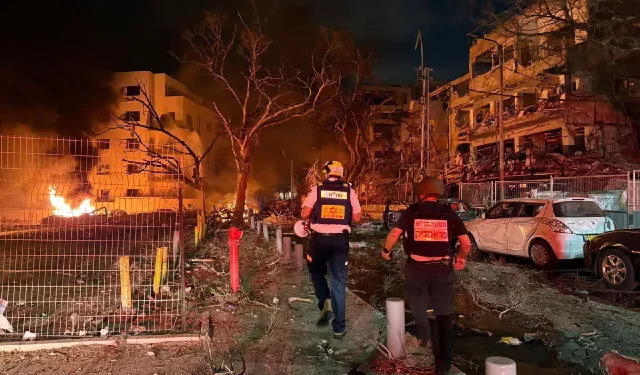A ceasefire between Iran and Israel came into force on Tuesday, drawing a line under 12 tense days of cross-border attacks. Yet experts who spoke to Al Manassa warn that this fragile pause is more likely a pivot than a peace.
It also raises the question whether Iran’s temporary calm gives Israel the latitude to intensify its operations in Gaza, or if newly drawn rules of engagement impose fresh constraints.
While some argue Israel emerged battered and militarily diminished, others suggest it achieved a strategic milestone by setting back Iran’s nuclear ambitions. Meanwhile, many analysts see Iran’s performance as a symbolic win that cracked the facade of Israeli deterrence.
US President Donald Trump announced the ceasefire on Tuesday. He described the truce as “unlimited” and predicted it would “last forever,” urging restraint from both nations during an NBC News interview.
Gains and losses
The airstrikes may have stopped, but debates over who “won” the skirmish rage on.
Ambassador Rakha Ahmed Hassan, a member of the Egyptian Council for Foreign Affairs and former Egyptian deputy assistant foreign minister, sees that Israel suffered heavy losses that did not stop at material targets. These losses extended to reveal deep strategic weaknesses, while Iran showed resilience, as he described it.
“Israelis spent hours in bunkers, production, and tourism halted, and flights were grounded,” he told Al Manassa. For Hassan, the war spotlighted Israel’s Achilles’ heel—a lack of strategic depth that left it vulnerable in ways Iran’s vast territory did not.
Emad Gad, deputy head of the Al-Ahram Center for Political and Strategic Studies, offered a more tempered view.
“Israel appeared exposed militarily but achieved a major objective by disrupting Iran’s nuclear program,” he argued, insisting the real verdict lies ahead—around negotiation tables, not on battlefields.
Gad pointed to the US-led strikes on Iranian nuclear facilities as a strategic setback for Tehran. “Even if Iran downplays it, the hit will cost billions and years of rebuilding,” he said.
But Hassan rejected that assessment. “These were building hits, not knowledge losses,” he countered. “If an engineer loses their home, they can rebuild a better one.”
Both agreed that the war revealed a deeper vulnerability within the Israeli society: as dual-national citizens immediately fled, seeking safety abroad.
Gad warned that lasting strategic change hinges on diplomacy—specifically, whether talks can compel Iran to shift uranium enrichment to foreign sites.
The theatrics of politics
Amr Hashem Rabie, political science professor and another Al-Ahram deputy director, dismissed narratives painting Iran as a victor, asserting that Iran suffered a “military setback and a political defeat” during the conflict.
He credited Iran’s survival not to strength, but to “a theatrical intervention orchestrated by Qatar.” In his view, Tehran missed a tactical opportunity to withdraw from the Nuclear Non-Proliferation Treaty (NPT). That move, he suggested, would have shielded it from international inspections.
“Had Iran left the treaty, it would have turned its nuclear file into a black box,” Rabie said. “No inspectors, no oversight.”
Instead, Iran fired on the US Al Udeid Air Base in Qatar—a gesture Rabie dismissed as mere theatre. Meanwhile, a parliamentary committee in Tehran approved a draft bill to suspend cooperation with the International Atomic Energy Agency, though no final vote has been held.
Despite the bravado, Rabie conceded that Israel’s reputation suffered. The Iron Dome defense system, long a symbol of Israeli strength, appeared patchier than expected.
Gaza implications
The implications for Gaza remain murky.
Rabie pointed to Trump’s omission of Israeli captives in his speech as a sign the deal won’t cover Gaza. Gad echoed that, saying Iran’s weakened position limits its ability to back Palestinian militias. He argued that de-escalation now hinges on Hamas embracing unity with the Palestinian Authority.
Hassan, however, linked Gaza’s fate to Trump’s own political calculus. “Trump now realizes the high cost of unconditionally backing Israel,” he said, accusing both Washington and Tel Aviv of turning humanitarian aid into a “trap to eliminate the Palestinian people.”
Israel’s offensive began nearly two weeks ago, blind siding Tehran just as it prepared for a new round of nuclear talks with the US. The opening salvo reportedly killed high-ranking officials, including Iran’s chief of staff and nuclear scientists. Iran responded with a salvo of missiles and drones.
